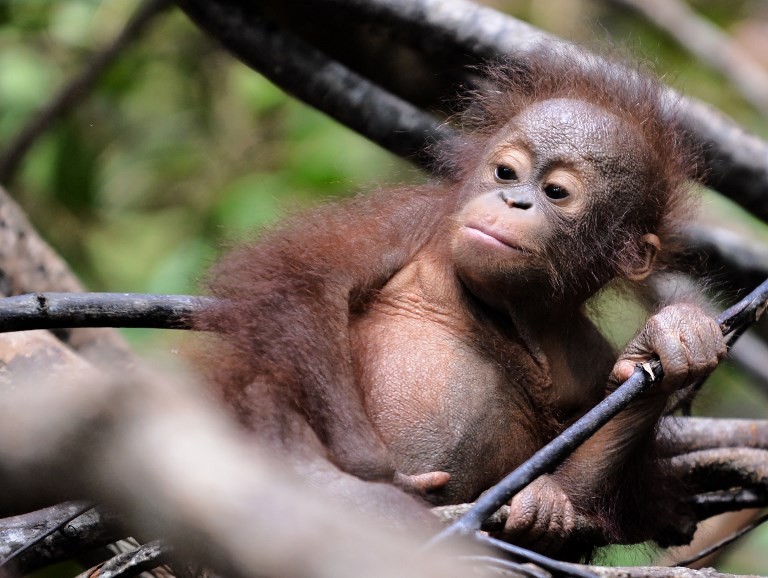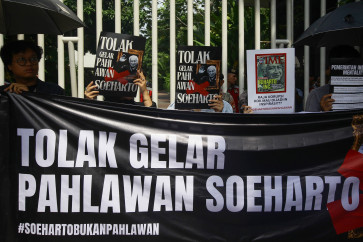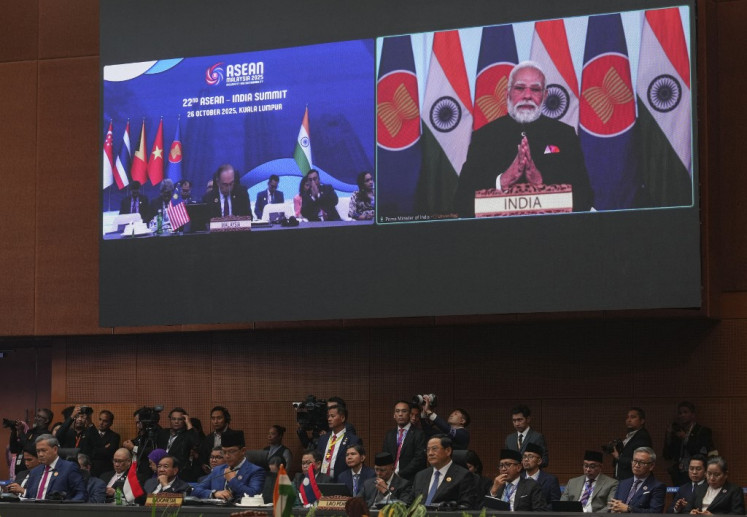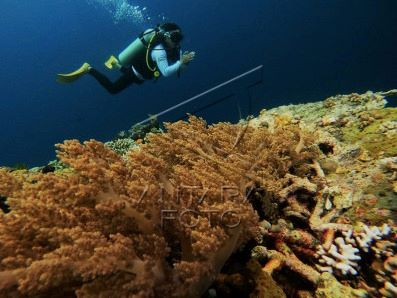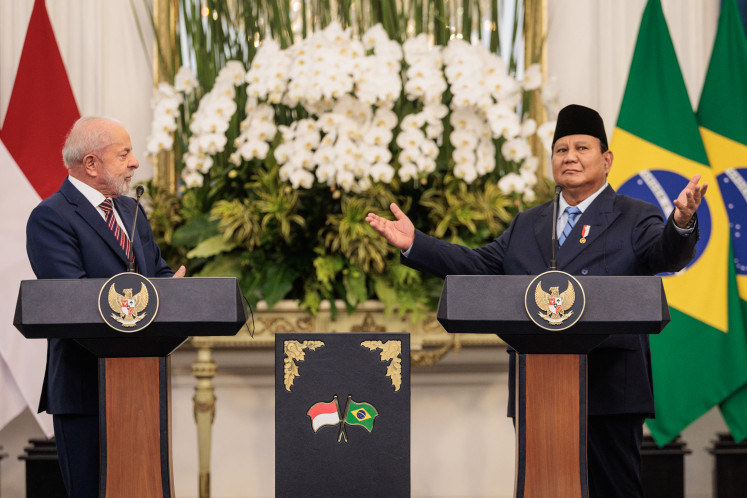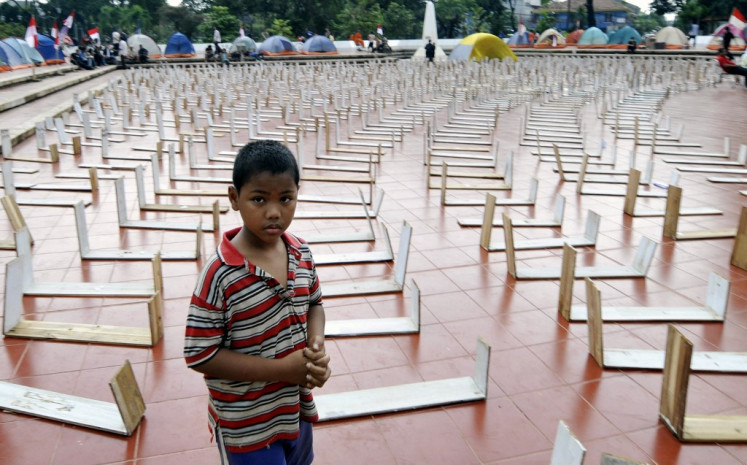Popular Reads
Top Results
Can't find what you're looking for?
View all search resultsPopular Reads
Top Results
Can't find what you're looking for?
View all search resultsEffectively saving Kalimantan's orangutan
IUCN has downgraded the status of the orangutan from “endangered” to “critically endangered”.
Change text size
Gift Premium Articles
to Anyone
M
ost people nowadays feel great sympathy for the orangutan, the great ape of Southeast Asia that reminds us so much of our own human species. However, the overall population of this top primate has been driven into a sharp decline in the last few decades.
This is caused mainly by the continuous destruction of their living areas and also by illegal hunting and the pet trade. The International Union for Conservation of Nature (IUCN) has therefore downgraded the status of the orangutan from “endangered” to “critically endangered”.
So, what can we do to ensure the orangutan will survive for future generations? First, we need to know exactly the current state of the orangutan, then follow that up with inventories and action plans of urgently required conservation interventions. It was recently found that 78 groups of orangutans remain in Kalimantan. Our analysis revealed that only 20 groups can be considered safe, living in sufficiently large areas that are either protected or sustainably managed.
The other 58 are threatened by fragmentation and conversion of their habitats. The only positive news is that all of the largest populations are living in relative safety and receive much attention from conservation organizations and the local governments.
The application of state-of-the-art geographic information systems combined with field data has made it relatively easy to check where and how much orangutan habitat was lost between 2005 and 2016, as published in the “Environmental Status of Borneo” report. This enables us to identify trends and actors of habitat conversion. Further, almost 2 million hectares of orangutan habitat were lost and most of the conversions occurred of lowland rainforest and peat swamp forest, the most suitable forest types for orangutans.
The conversions mainly took place to develop land for oil palm and pulpwood plantations.
It was also possible to check the regional spatial planning for threats and opportunities in the near future. The central and provincial governments have all developed land use plans, which indicate where natural forests are to be retained, either as protected or production forests, and where forests can be converted to make place for other developments, such as industrial plantations, local agriculture and infrastructure.
Still, large areas of orangutan habitats are allocated for conversion in the latest land-use plans. In West Kalimantan, there is a total area of 200,000 ha of orangutan habitats allocated for other (non-forest) land uses.
In Central Kalimantan, a total of 500,000 ha of orangutan habitats were allocated for other (non-forest) land uses. As governments are now highly aware of the importance of orangutan habitat conservation, these allocations are probably due to the previous lack of information on the presence of orangutans in the allocated areas. With the right approach, in many locations it is still possible to convince the governments to revise their spatial planning.
The above investigations have led to a large comprehensive set of recommendations of conservation interventions. All orangutan locations of Kalimantan where urgent action is required are identified, and for each of the locations the conservation interventions are examined.
Most of the recommendations are formulated as action for halting habitat destruction, connecting fragmented habitats and developing management plans with companies to ensure the survival of orangutans in the areas.
Three-quarters of the orangutan populations are living outside protected areas, and large-scale conservation initiatives have the resources to engage with concession holders in entire landscapes.
At this wide level, spatial planning can ensure that orangutan areas remain covered by forests and that habitats remain connected so that orangutans have the freedom to move around.
This is very important for fragmented landscapes, which are particularly common in West Kalimantan, where very small orangutan populations are projected to undergo total habitat loss without spatial planning efforts, combined with integrated stakeholder approach including forest concessions who must managed their forest sustainably.
At the landscape level, initiatives like Heart of Borneo can contribute to ensure connectivity among all orangutan habitats.
Some of the orangutan conservation projects done by WWF Indonesia in West Kalimantan show effective results when local communities get involved. This is currently in progress and includes the development of wildlife corridors to connect the forest fragments.
Local communities play a major role in preserving the orangutan habitats in the vicinity of their fields. Community development and ecotourism projects generate benefits for now and in the future.
If all local stakeholders are willing to respect the orangutans and their habitats, then it is still possible to save the remaining orangutan populations of Kalimantan.
***
The writer is a landscapes ecology specialist for the Heart of Borneo initiative, a conservation program under WWF Indonesia involving Brunei Darussalam, Indonesia and Malaysia to manage tropical forests of Borneo.

